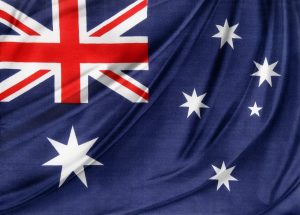In 1988 Australia celebrated its bicentenary. The country was 87 years old at the time, having been formed on January 1, 1901. The premature celebration instead marked the 200th anniversary of the arrival of British ships to the continent. This symbolized something quintessential about the Australian nation – a grasping to find national symbols to express itself, and the often bumbling results that materialize from this awkward process.
Six years later, January 26 became a national public holiday with the hope of consolidating the idea of British settlement on the continent, rather than the formation of the modern state, as the primary national commemoration.
It hasn’t worked out well.
After another three decades, January 26 has become a day of major protests, clownish culture warring, and general ambivalence. A day of national unity it is not. This year, the day began with a statue of Captain James Cook in Melbourne being cut off at the knees, and ended with a group of Neo-Nazis parading through the streets of Sydney. In the weeks prior, the leader of the opposition, Peter Dutton, urged consumers to boycott a major supermarket chain due to the company’s decision to not stock Australia Day merchandise.
Attempting to ride a pair of supermarket-bought Australian flag flip-flops into the prime minister’s office is gauche even by Australian standards. But it does, in its own way, symbolize what is at the core of the contest over Australia Day: The lack of emotional security Australia has about itself, and the absurd public huffing that results from this. Waving around cheap Chinese-made paraphernalia as both national symbols and as a threat to those not falling in line isn’t the sign of national confidence Dutton may have thought it was.
Yet the challenge to Australia Day that so infuriates the likes of Dutton offers no great solution to Australia’s national day dilemma. Undoubtedly January 26 is a day of deep disrespect to Indigenous Australians, and it should be obvious that it is an astonishingly inappropriate day to commemorate. Yet the protests that are now annual events on the day wish to project a permanent state of guilt onto the country, and set Australia the impossible task of trying to scrub its past clean. It’s dead-end politics.
National days by their very nature search for a past event to anchor them, yet the past is always a political contest for narrative power. The problem for Australia is that it has no great truly shared historical markers to commemorate. It is a country that has muddled along, improved itself in many ways, but, aside from the act of colonization itself, has had no political convulsion that the majority of the population would consider of emotional worth.
National myths are thin on the ground, and even the attempt to build one around Australia’s other de facto national day – ANZAC Day – is rather dubious. One of the great strategic blunders of World War I, where British incompetence sent young Australians to their slaughter on Gallipoli Peninsula, then part of the Ottoman Empire, is an odd source of national pride – although maybe it says something about Australia’s lack of national confidence.
As the day of Australia’s federation, January 1 would be logical for a national day. Canada, another long-time British colony, took that approach; its national day commemorates the first four colonies federating and the modern Canadian state being born. Yet in a very Australian manner, the counter-argument to this is that January 1 is already a public holiday. To double up on a public holiday and miss out on a day off would be an affront to the Australian spirit, rather than an acknowledgement of it.
Yet January 26 is becoming unsustainable. National days cannot remain if they become a source of instability. It defeats their purpose. At present the country’s political leaders seem dumbfounded by this. Prime Minister Anthony Albanese performed the duties required of him on Australia Day, but with no great enthusiasm. Meanwhile Dutton sensed an opportunity to enhance his grievance-based politics. But neither man offers any real vision as to how Australia can overcome this national impasse.
The problem may be that Australia doesn’t really have a strong sense of the nation it is or wishes to be. Australia has evolved at such a rapid pace in recent decades that the identity it seeks from its history simply may not exist. But maybe this evolution indicates that a new approach to a national day could be found – one that stops trying to find symbolic worth in the past and instead focuses on what kind of country it wants to be in the future.

































